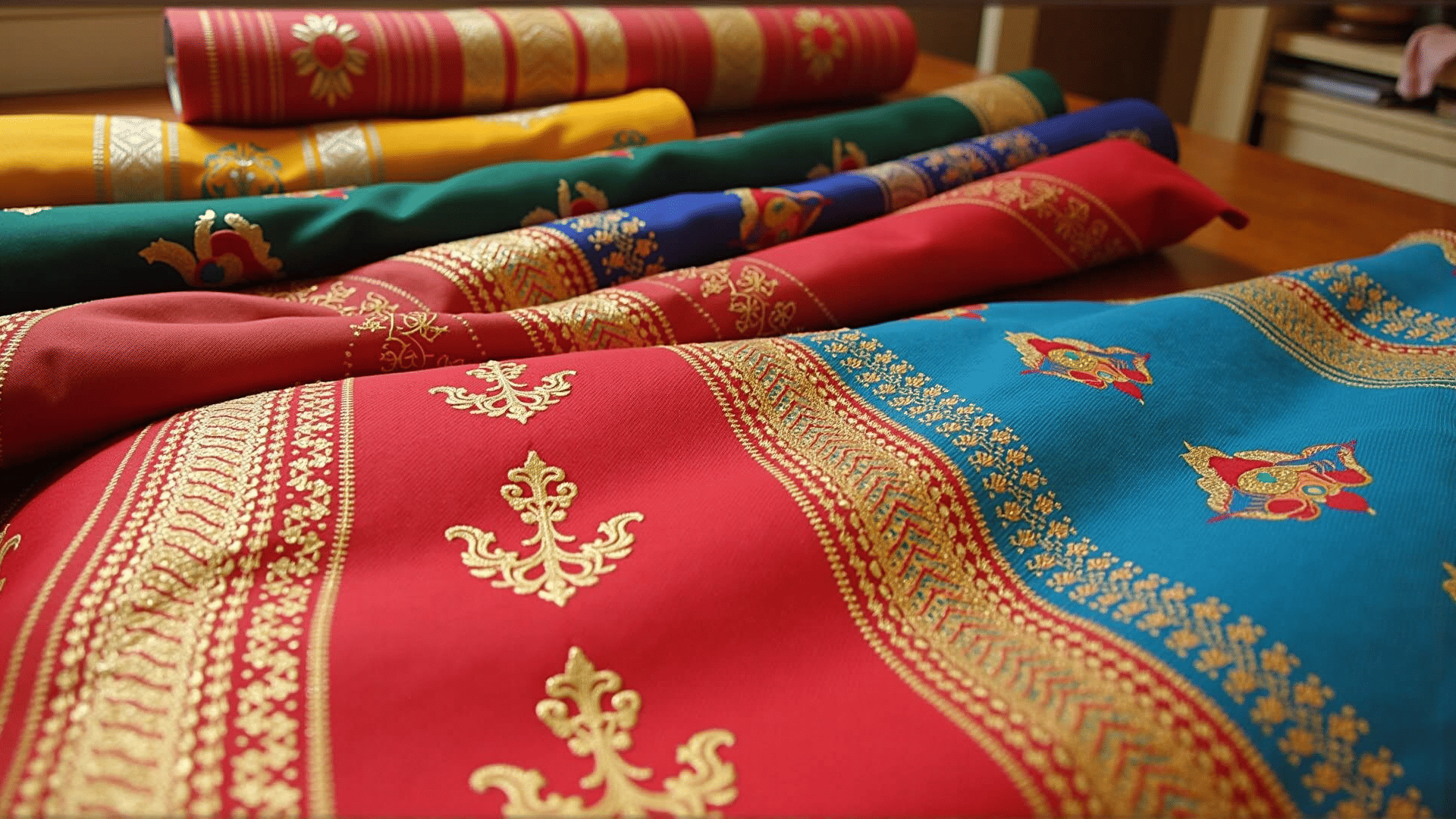India's textile heritage is a vibrant tapestry of history, culture, and artistry that has evolved over thousands of years. Each region in India boasts its unique style, technique, and motif, reflecting the diversity and richness of the nation's cultural fabric. The story of Indian textiles is not just about fashion; it's a narrative about tradition, community, and a special bond between the artisans and their craft.
The Weave of Tradition
From the timeless elegance of Banarasi silk saris in Varanasi to the intricate embroidery of Phulkari in Punjab, Indian textiles showcase an extraordinary range of weaving techniques and styles. Handloom weaving, a significant part of this tradition, has been passed down through generations, representing a skill that artisans hone over their lifetimes. Each piece meticulously crafted on a handloom is a labor of love, requiring immense patience and dedication.
Diverse Regional Specialties
The diversity in Indian textiles reflects the country’s varied cultural landscapes. In the north, the delicate Pashmina from Kashmir is known for its soft texture and luxurious warmth. The craftsmen in Gujarat and Rajasthan are revered for their vibrant Bandhani and Leheriya, traditional tie-dye techniques that create vivid patterns and colors. Heading south, the temple town of Kanchipuram is famed for its exquisite silk saris imbued with temple-inspired motifs and gold-thread work.
In the east, West Bengal’s Baluchari saris tell stories of ancient Indian epics through their intricate patterns and narrative borders. Meanwhile, Odisha’s Sambalpuri ikat is known for its unique resist dyeing technique, producing stunning geometric designs. The profound artistry in these textiles is not only a celebration of color and craftsmanship but a preservation of historical narratives and cultural identity.
Artisanal Excellence and Sustainability
The backbone of traditional textile production in India lies in its artisans, who not only create textiles but breathe life into them. Despite the challenges posed by modernization and industrialization, there remains a steadfast commitment to preserving these ancient crafts. Many contemporary designers and organizations are working to revive traditional techniques by creating a sustainable and ethical fashion industry that respects and uplifts artisans.
These artisanal crafts contribute significantly to the livelihood of many rural communities. By supporting traditional textiles, consumers become part of a sustainable cycle that respects both the environment and the artisans' well-being. The resurgence in artisanal appreciation highlights a growing shift towards slow fashion, valuing quality, tradition, and sustainability over mass-produced goods.
A Global Appeal
Indian textiles have continued to capture global imagination, inspiring designers and fashion houses worldwide. The influence of Indian craftsmanship can be found in haute couture collections globally, offering a blend of ancient techniques and modern aesthetics. This international recognition is a testament to the timeless appeal and versatile nature of these textiles.
As the world leans towards more sustainable and responsible fashion choices, traditional Indian textiles stand as symbols of sustainability, heritage, and unparalleled craftsmanship. These fabrics are not just materials woven together; they are threads that connect the past to the present, telling stories of culture, traditions, and the indelible human spirit.
In embracing these textiles, one embraces a narrative of human history told through fabric and thread, a narrative that continues to evolve with time while remaining deeply rooted in age-old traditions. This vibrant heritage is a testament to the enduring beauty and artistry of Indian textiles, ensuring that these cherished art forms are cherished for generations to come.
